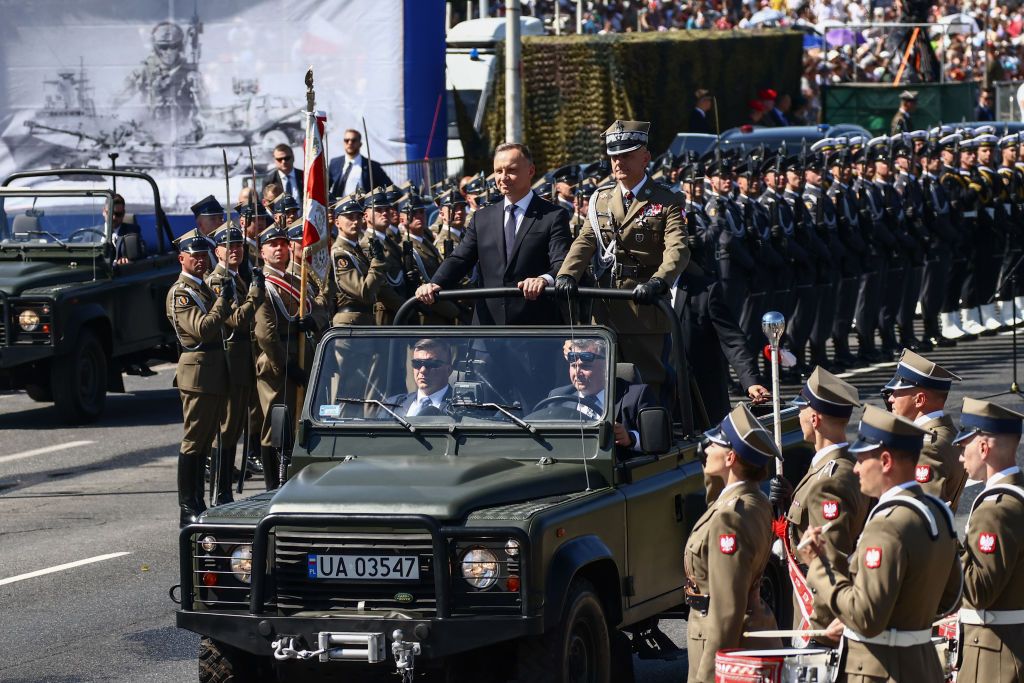Media: Polish Foreign Ministry surprised by Morawiecki's statement on arms transfers

The Polish Foreign Ministry was surprised by the country's Prime Minister Mateusz Morawiecki's statement that Poland is not sending more weapons to Ukraine as it is rearming itself, the news portal RMF24 reported on Sept. 21.
According to the news outlet, Poland's head of government likely did not consult his words with the foreign ministry.
Previously on Sept. 20, Morawiecki told Polsat News that Warsaw is no longer supplying Kyiv with arms, as it is shifting focus on restocking its own military arsenal.
Media outlets have connected the announcement to the ongoing dispute between Poland and Ukraine over an embargo on Ukrainian grain, which saw tensions rise between the traditionally close allies.
The Polish government spokesperson Piotr Müller clarified that Warsaw continues to supply arms and ammunition that are part of previously agreed deliveries.
The official added that the hub in Rzeszów for Western military assistance flowing to Ukraine also continues to operate.
According to RMF24, the foreign ministry staff reiterated the same position, saying that Poland is currently delivering a shipment of Krab self-propelled howitzers. The ministry's officials are reportedly waiting for the return of Foreign Minister Zbigniew Rau from the U.S. to receive instructions on how to address the issue.
Regarding the halt of the arms flow, RMF24 argued that Warsaw simply ran out of arms it could provide without jeopardizing its own security, adding that the Polish arms industry continues to refill the stocks.
Commenting on any potential future arms shipments for Ukraine, Polish State Assets Minister Jacek Sasin said that "at the moment it is as the prime minister said - in the future, we will see."
According to the Polish Defense Ministry, the country's military aid for Ukraine amounted to 3 billion euros ($3.2 billion) by July. This support included a wide range of weaponry from MiG-29 jets and tanks to armored vehicles and artillery.
Ukraine's dispute with Poland, traditionally one of its most ardent supporters in its struggle against Russian aggression, was sparked by Warsaw's decision to extend the import ban on Ukrainian grain products past its expiration date set by the EU on Sept. 15.
The EU instituted the measure in May at the request of Poland, Hungary, Slovakia, Romania, and Bulgaria, who feared that the influx of cheaper Ukrainian products would put pressure on their farmers.
In response to Poland's decision, Kyiv said it would sue Warsaw in the World Trade Organization and also threatened to introduce an embargo on onions, tomatoes, cabbage, and apples from Poland.
Polish Prime Minister responded that if Ukraine imposes such restrictions, his country will extend the import ban on further products.
During his speech at the U.N. General Assembly in New York, Ukrainian President Volodymyr Zelensky called out the "alarming" behavior of Ukraine's partners regarding the grain import bans.
While not naming specific countries, the statement came shortly after Poland, Hungary, and Slovakia said they would prolong the import restrictions.
In protest to Zelensky's statement at the U.N. headquarters, the Polish government also summoned Ukraine's Ambassador to Poland Vasyl Zvarych, PAP reported.
The dispute arose just as Poland heads for a parliamentary election in October. The governing Law and Justice (PiS) party hopes to secure the backing of voters from rural regions who would be most likely affected by the influx of Ukrainian grain.
Opposition leader Donald Tusk who wants to unseat the right-wing party criticized the apparent escalation of the grain disputes by PiS as "dangerous and disturbing."
He also denounced Morawiecki's words on the weapons transfers, calling it a "moral and geopolitical scandal," and accused PiS of using the disputes for their election campaign.













